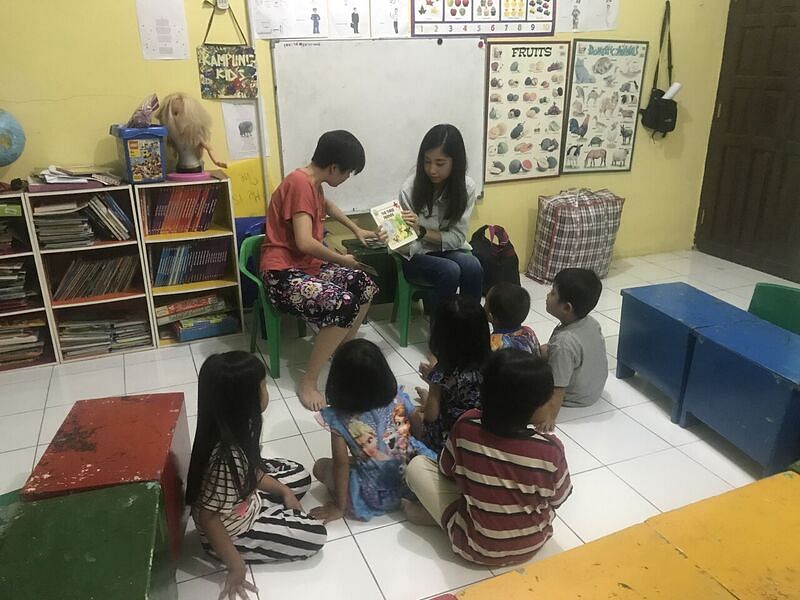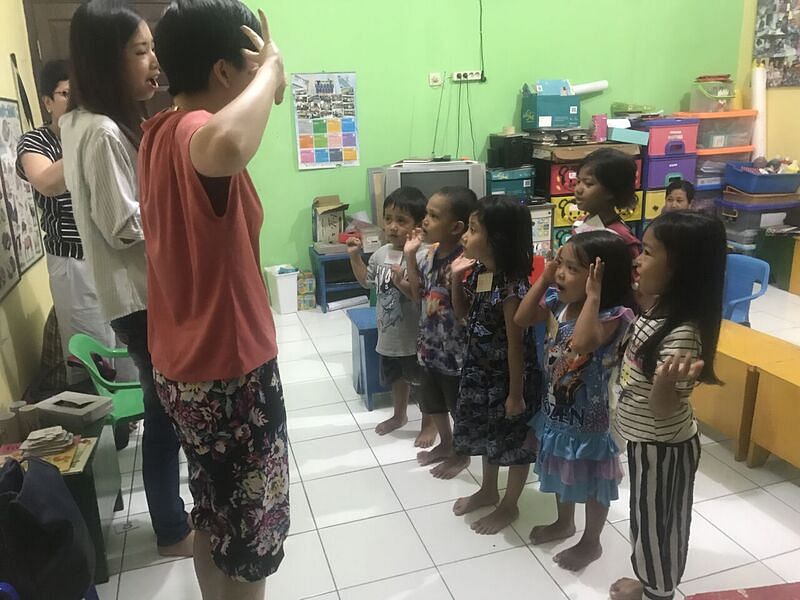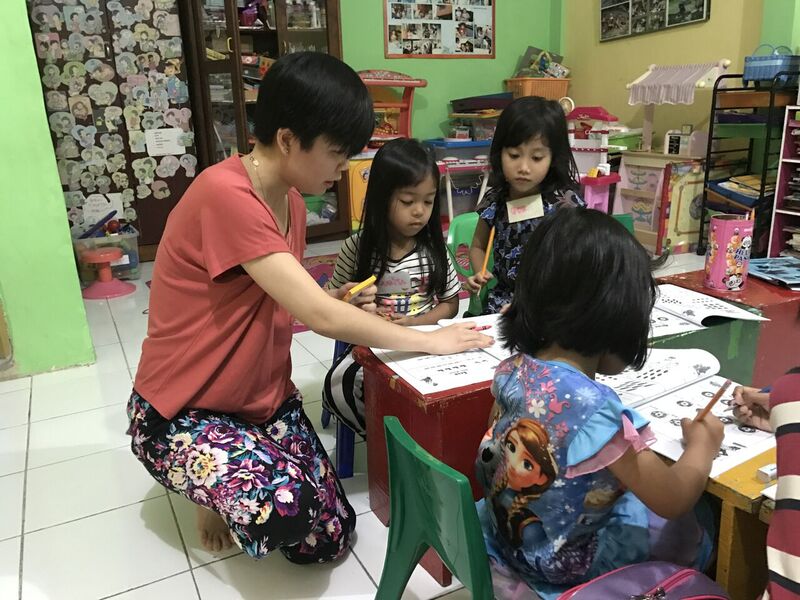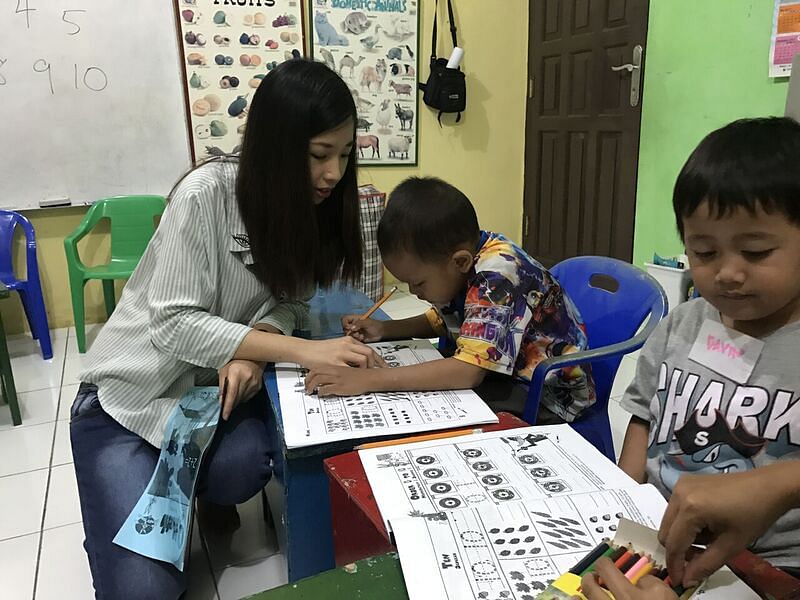Singaporeans Deborah Lee and Dianne Goh sat on tiny chairs, with half a dozen curious preschoolers at their feet. Their eyes widened and narrowed and their voices rose and fell as they recited each line from "The Three Friends", a children's story about animals.
In a smattering of English and basic Bahasa Indonesia, the volunteer teachers tried to make themselves understood.
Unsure of the Indonesian term for elephant's trunk, Ms Lee resorted to using hand gestures. She balled one hand into a fist, put it in front of her face and extended it outwards.
"This is elephant's trunk," she said. Ms Goh chimed in: "Trunk. Not nose, OK? Trunk." The children nodded.
After the story-telling session, they played videos on their i-pad and led the class in singing and dancing to simple tunes such as "Head, Shoulders, Knees and Toes".

Ms Lee, 29, and Ms Goh, 28, are among 20 volunteer teachers at the Yayasan Kampung Kids, a foundation in the poorer neighbourhood of Pejaten in South Jakarta which has been running free educational, as well as food and nutrition programmes for the underprivileged for nearly two decades.
Ms Lee has been volunteering there since 2015, shortly after moving to Jakarta where her husband is stationed for work. Ms Goh did the same last year.
In a country where pre-primary education is not compulsory, and most of the kindergartens and nurseries are privately-run and expensive, volunteer teachers like them are much welcomed.

The government has been increasing funds gradually for early childhood education and plans are afoot to build an education centre in every village across the country. In the meantime, foundations like Kampung Kids are helping to fill the service gap.
Housewife Sumarni, 45, said she would have to fork out anywhere between one and five million rupiah (S$105-S$526) to enrol her five-year-old daughter Nurita in a regular kindergarten, and another 300,000 rupiah every month for school fees.
"All parents want the best education for their children. But not everyone can afford that," she said.
The biggest challenge for the Singaporeans, as expected, is the language barrier. But they say this has only spurred them to get creative.
Ms Lee, who holds a Master's degree in Child Development and Education, had taught English and Mathematics to primary school pupils in Singapore and wanted to continue helping the local community.

"The children hardly understand or speak English while I'm not very fluent in Bahasa Indonesia," she said, adding that she conveys her messages by drawing pictures and playing charades. Sometimes, the mothers who sit in during the lessons will help her explain to the children.
Struggles aside, they aim to make lessons fun through songs and get the children "used to listening to English", Ms Goh said.
"We have to use very simple and short stories. We also get them to repeat the sentences after us," she added. "I can see the importance of giving young children a good foundation in education as it gives them self-confidence, and a love for learning."
The parents say they appreciate the efforts of the foreign teachers - including those from Singapore, India, Australia, Britain and the US - and do not mind that they are not fluent in Bahasa Indonesia.
"They could be doing something else with their time, but choose to come here to teach our kids. I'm just grateful," 30-year-old Fitriyah said.

Agreeing, housewife Nenah, 32, said that her daughter would sing English nursery rhymes at home and tell her that she looks forward to going to school.
"I hope my child will be able to master English so she can interact with people other than Indonesians," she said.
For the Singaporean teachers, sharing knowledge goes two ways: The pupils and the parents have not only expanded their Indonesian vocabulary, but have also given them valuable life lessons.
"They taught me so much more beyond the four walls of the classroom," Ms Lee said.
"Despite not having much, the children are very content and carefree. I've also learnt to be content in life, in various situations and circumstances," she said.
"They constantly remind me to have a bigger and more generous heart towards the poor."

